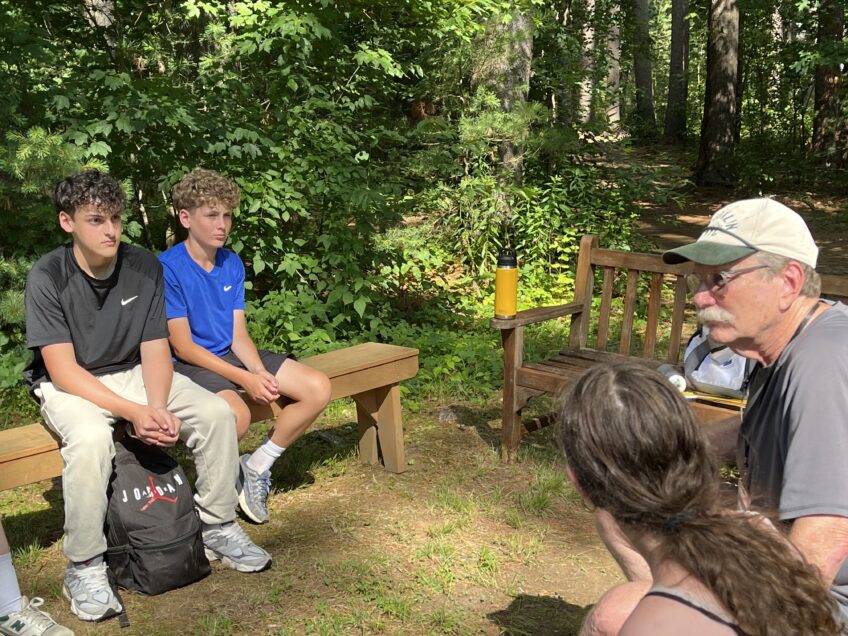Reflections on Kayitz 2025 from Rabbi Gordon Tucker

Rabbi Gordon Tucker shares these reflections on his experiences with us at Camp Ramah New England during kayitz (summer) 2025:
In these times of multiple anxieties, one needs an oasis of hope. That’s how I refer to Camp Ramah New England, where I spent 2½ weeks teaching: first the staff for 4 days during the week of preparation for the campers’ arrival, and then presenting lessons largely to the older (“B Side”) edot. My experience with both the staff and the campers bore out this feeling that there is more than a seed of hope in places like Camp Ramah.
The educational theme for the first month was Amidah (“standing”), meant to be construed broadly by the team of educators. Because of the fractionalizations in both American and Israeli societies, the focus of my teaching to the campers became the Jewish religious values of compassion and empathy, i.e. standing with people, and standing up for them, especially if they are different from us. One never knows how topics and themes that resonant with older adults will play with teenagers, but in this case, there was as close to rapt attention as one can get from those age groups. A combination of homely experiences with judging and misjudging others — many of which were contributed by the campers themselves — together with some simple traditional texts (e.g. “do not stand by the blood of your neighbor”) was sufficient to get these not-quite-adults thinking about the deficits of empathy in the world around them. I finished my teaching with the hope that these conversations and learning sessions might just change young people’s perspectives on the people with whom they share this world.

A “minyan” of campers from the oldest edah (“Nivonim”) sat with me for two weeks doing something even more pointed. Together, we read poetry by both Israeli authors and Palestinian writers. There was nothing political about any of these poems; instead, they expressed the human experiences and emotions that come with terrible and tragic events such as terrorism and war. Hebrew poems, especially those written in the aftermath of October 7, were juxtaposed to translations of Palestinian poems describing fear and loss. What the Nivonimers who chose this module saw were the commonalities of humanity across the political and military lines. Whatever the political views that these young adults have or will adopt — which, again, was not our focus — they received an invaluable lesson in human dignity and compassion. We often — and justifiably — post reports from Ramah that describe the fun and the camaraderie that campers and staff alike enjoy. That is a central purpose of Ramah. But another crucial purpose is making young Jews more aware of their world and their growing responsibilities to it. All of this is why Camp Ramah New England was for me a true oasis of hope this summer, and I believe I am speaking for my fellow educators as well. I always say that there are two things above all that keep me coming back for at least part of every summer (even though I was the second oldest person in camp!): Nivonim, and the Tikvah Program, the latter of which I have written about in previous summers.
It may have been exhausting for this senior citizen, but it was exhilarating and uplifting most of all.
Rabbi Gordon Tucker is a leading scholar of Conservative Judaism, and he’s been an influential teacher and educator at Camp Ramah New England all the way back to 1987. As vice chancellor for Religious Life and Engagement at The Jewish Theological Seminary, Rabbi Tucker focuses on enhancing Jewish life at JTS.
